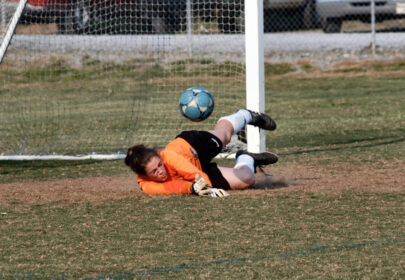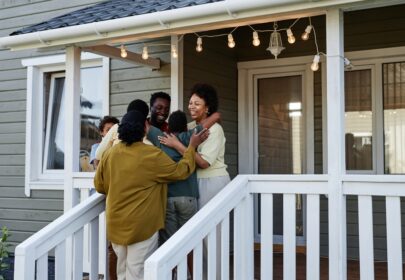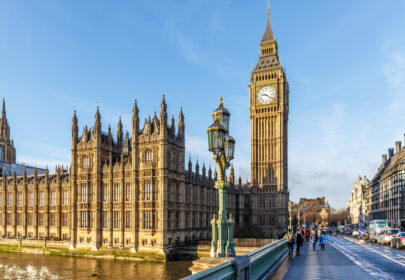Blog
How much does private education cost?

At a glance
- Independent school fees jumped by 5.1% in 2022, up from 4% on 20/21.1 The average cost per child is now £34,790 a year for boarders.1
- Private education can be affordable, providing you plan properly and give yourself as much time as possible to save.
- Take financial advice to help you make the right choice about the most tax efficient way to achieve your goal.
Spending money on private education is often seen as the best way to set your children up for future success. But if you thought choosing the right school – and getting in – was hard, the scale of the fees and the financial commitment required is enormous.
In the current economic climate, can you afford to go private?
How much does private education cost?
The cost of private education has soared. Fees, which held steady during the pandemic, jumped by 5.1% in 2022, up from 4% in 2020-21 according to Schoolfeeschecker.1 The average cost per child is now £20,480 a year, or £6,827 a term for day pupils, and £34,790 a year or £11,597 a term for boarders.1There are big regional variations too. With rising inflation, and energy costs and food prices, private schools have had little choice but to pass those increases on to parents.
This means that, even if you earn a minimum of £100,000 per year you could struggle to keep pace with rising school fees.
And there are the ‘hidden’ costs too. Private school is a long-term commitment – so you need to factor in a 5% fees increase per year, plus school trips, uniform, and travel if your children will be day pupils. Everything that comes with a quality education – from cricket bats and ski trips to iPads and art materials. A good rule of thumb is to build in 10% per year.
Putting a child through the private system is one of the most significant financial decisions you’ll ever make.
Is private school still worth the money?
The pulling power of going private is still strong. The latest figures (January 2022) from the Independent Schools Council or ISC show a record 544,316 pupils at 1,388 ISC member schools. It’s not simply about the academic grades, small class sizes and sports facilities. For many parents, private education is as much about who you meet, as what you learn. Friendships made in school days can open opportunities in later life too.
How can I turn the dream into reality?
Every parent wants to give their children the best education – as well as the one that’s right for them. And although the fees are daunting, the key to making it happen is to start planning as early as you can. Lots of parents have the conversation about public versus private education before having children, and make the decision to start saving soon after the child is born.
That way, you’ll have up to ten years’ worth of savings, and the benefit of compound interest, to start them off at secondary school.
It’s a lot of money to find. And everything you save is going to need to work very hard.
Paying for private schooling – income, inheritance or investment?
There are several options available to help make school fees more affordable – and they can be both tax-efficient and flexible.
In general, parents looking to fund school fees fall into three camps. Those who have a lump sum to invest – perhaps an inheritance; those who can pay from their income, so long as they remain in their job and parents who are planning ahead and want to set up a regular savings plan that will see them all the way through school and university.
Cash or Stocks and Shares?
Building this kind of capital is best done in decades, not days. One such option is using your annual ISA allowance, which means you can save up to £20,000 a year before tax – £40,000 if you’re a couple. However, putting money into a savings account, or a cash ISA, is unlikely to give you the best returns if you’re going to afford this scale of school fees, even if you allow plenty of time, and the interest rate remains relatively high.
Investment in stocks and shares, including Stocks and Shares ISAs, provides the potential to outperform cash holdings. Especially if you’re investing for the mid-term or long-term. But, like all stock market investments, it can carry more risk, but has the potential to give greater growth over time. If you’re considering your options, taking expert financial advice is a wise move, to determine what level of risk you feel comfortable with.
The value of financial advice
If private schools are on your wish list, start planning. Doing your homework and seeking out trusted, expert advice is, as always, the key to long-term success.
After all, what better investment could there be than your child’s future?
If you’d like to talk to a financial adviser about planning for school fees, do get in touch with us today.
The value of an investment with St. James’s Place will be directly linked to the performance of the funds selected and the value may fall as well as rise. You may get back less than the amount invested.
An investment in equities does not provide the security of capital associated with a deposit account with a bank, building society or a Cash ISA.
The favourable tax treatment given to ISAs may not be maintained in the future, as they are subject to changes in legislation.
Source
1Schoolfeeschecker, 2022
SJP Approved 21/04/2023
Tea or Coffee?
Why not get in touch to discuss your requirements? We understand that life is busy, that's why we're happy to meet in person or virtually. Let's start to plan your future together.















































































































